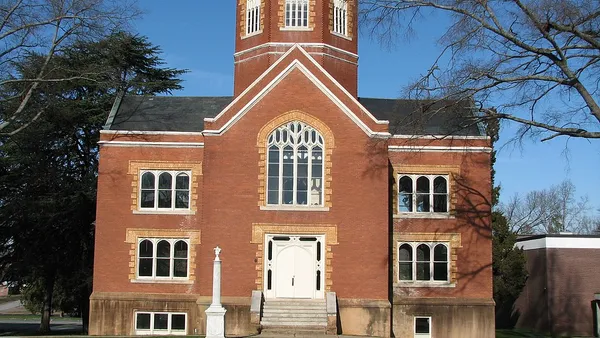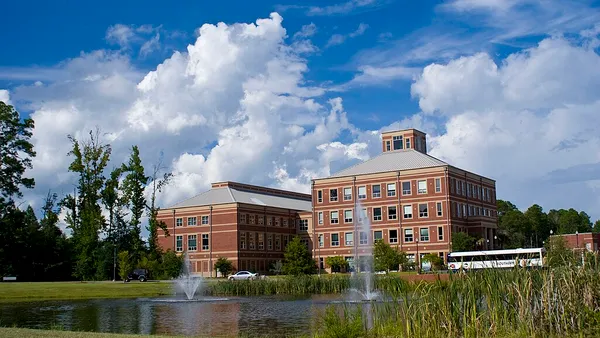Dive Brief:
- Drexel University is bracing for cuts to employee headcount and benefits after enrollment fell short of projections, which officials blamed on the “flawed” rollout of the new Free Application for Federal Student Aid.
- The Philadelphia-based private university’s budget deficit ballooned by about $22 million. First-year undergraduate enrollment is on pace to reach 2,350 students, about 17.5% below estimates, according to a campus message from top executives.
- A voluntary buyout program for faculty and staff announced in June won’t be enough to stem the operating losses, the leaders said on Tuesday. “We must make the more difficult decision to reduce our workforce and adjust our employee benefit program.”
Dive Insight:
Drexel leadership didn’t shy away from addressing the depth of the challenge facing the university.
“We have a crucial, immediate need to reduce expenses, grow revenue, and improve administrative efficiency over the next few years,” the executives — Interim President Denis O’Brien, Chief Operating Officer Helen Bowman and Provost Paul Jensen — said in their message.
Additionally they noted that the institution must “build financial resilience by bringing our expenses into alignment with revenue on a permanent basis.”
They cited a “large structural imbalance” amounting to 10% of the university's operating budget , which they attributed to factors facing the entire higher ed sector: declining enrollments, rising costs, increased institutional aid and spending on student support services.
The FAFSA debacle hit Drexel especially hard, given that it enrolls large numbers of Pell grant-eligible students, officials noted. In the 2021-22 academic year, 25% of Drexel undergraduates received Pell grants and 49% took out federal student loans, according to federal data.
To remedy Drexel’s financial woes, leaders say they have identified $80 million in cost cuts, including from administrative and academic budgets for fiscal 2025.
Along with the announced reduction to headcount and employee benefits, O’Brien, Bowman and Jensen said Drexel will continue its pause on nonessential hiring, spending and travel, and is going ahead with a plan to consolidate administrative services and space. They also said that the university could monetize parts of its real estate portfolio.
“No doubt our work is cut out for us, and our resilience will be tested. But this community excels at managing adversity,” they said in their message.
The university has faced an eventful year beyond finances. In May, Drexel went into lockdown over a pro-Palestinian protest encampment that then-President John Fry described as “intolerably disruptive to normal University operations,” including reports of antisemitic speech by some demonstrators.
Then in August, Drexel announced a voluntary resolution to an investigation by the Education Department's Office for Civil Rights over harassment of students of Jewish ancestry. Per the agreement, Drexel said it would clarify and strengthen its policies and procedures for responding to complaints of discrimination and harassment.
The university has also been working to integrate Salus University, also in Pennsylvania, after receiving accreditor approval in June for a merger agreement, and absorb 75 students from University of the Arts following the private arts institution’s sudden closure this summer.
And in July, the university’s former president announced he would depart to take on the top leadership role at nearby Temple University.














